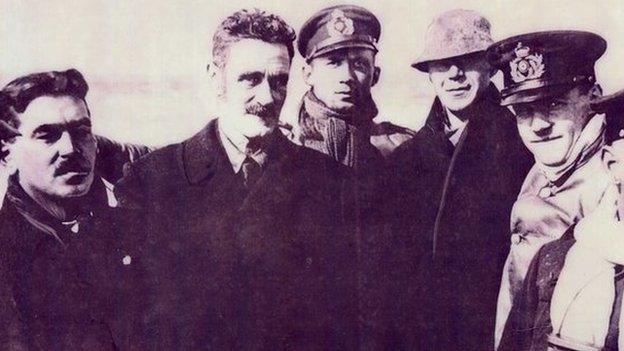Recordings shine new light on Ireland's War of Independence
- Published
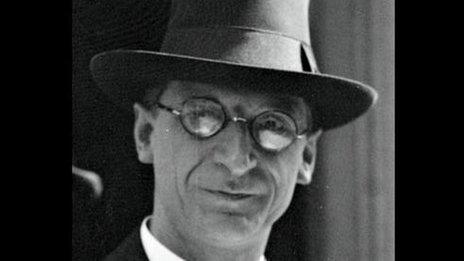
Eamon De Valera who was helped to escape from Lincoln jail by Seamus Dobbyn
Memories of the Irish War of Independence that lay buried for years in a library vault have been resurrected for a new audience.
Personal stories of war, rebellion and the men and women who shaped Irish history in the last century, had lain hidden in an Armagh library for many years.
But the dust is being blown off a unique set of tape recordings, and a treasure of trove of memories has been unearthed.
The recordings feature people who played a role in Ireland's War of Independence - including some from Northern Ireland.
Voices captured on old-fashioned tapes that were gathering dust are being translated into digital form so that everyone can hear them afresh.
The recordings shine light on a pivotal time in the history of Ireland - the early 1900s, the Easter Rising and the War of Independence.
In one interview, Kathleen, the widow of Tom Clarke - one of the key figures of the 1916 Easter Rising tells about how she argued with him not to return to Ireland and his certain death.
Seamus Dobbyn, an Irishman who spent time in Lincoln jail, tells of his role in breaking Eamon de Valera - one of the leading political figures in the history of 20th Century Ireland - out of prison.
Unique recordings charting the birth of the modern Republic of Ireland had lain in the vaults of the Cardinal Tomás Ó Fiaich, external library and archive in Armagh for many years,
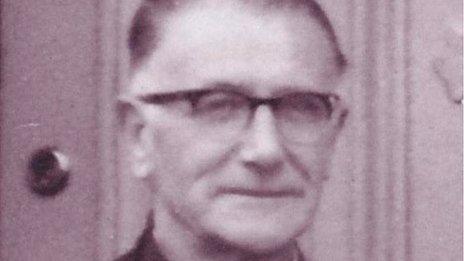
Fr Louis O'Kane recorded interviews about the Irish War of Independence
The recordings were made by a priest, Fr Louis O'Kane, who combined his twin loves of history and audio technology and set out to capture the voices and the stories of people who had lived through Ireland's war of independence.
Fr O'Kane made his recordings in the 1960s and 1970s. He wanted to capture the memories and stories of those involved in Ireland's War of Independence.
One such figure was Kathleen Clarke. Her husband, Tom, is the first signatory on the Irish Proclamation of Independence.
He was executed after the Easter Rising in Dublin 1916. Most of the Irish leaders were executed. But they paved the way forward for a future Republic of Ireland.
In a convent in Dungannon, County Tyrone, in 1968, an elderly Kathleen Clarke told her story to Fr O'Kane.
His recording is crackly but quite clear. She tells him that she and Tom Clarke were living in America.
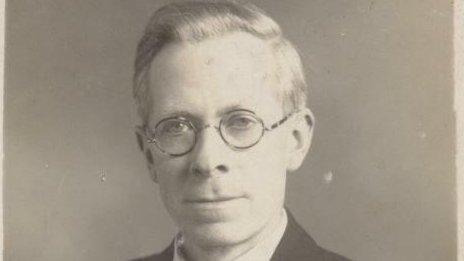
Seamus Dobbyn helped Eamon de Valera to escape from Lincoln Jail
He wanted to return to Ireland to gain independence for the country.
He had already served many years in jail and she was opposed to their returning.
"I knew I'd lose him," she said and her words came true.
She also gives her view of Roger Casement and his role in the war for independence.
Another man, Seamus Dobbyn, tells Fr O'Kane about how he worked to break DeValera out of prison.
"I had to estimate where each soldier or warder was going, I had to try and estimate whether he was going out on leave. If you saw them sprucely dressed, then you knew. You would say then, 'There's 14 of them gone on leave'," he said.
He also described how a blackboard was set up to block the light and allow De Valera and the other men to escape without being seen.
Dobbyn told a story of how one of De Valera's fellow escapees was on the run in Dublin.
He was on a tram when a crowd of Black and Tan soldiers got on.
He hit on the ruse of giving his real name - they presumed this was just somebody trying to be smart, gave him a clout and sent him on his way.
Roddy Hegarty, director of the Tomás Ó'Fiaich Memorial Library and Archive, said the recordings were part of "our rich history" and would soon be available to a wide audience.
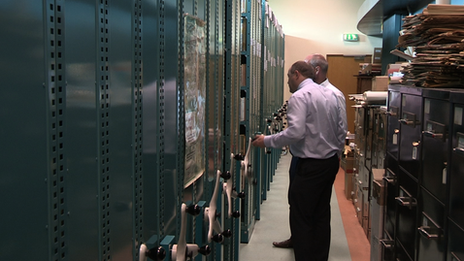
The recordings are kept at the Tomás Ó'Fiaich Memorial Library and Archive in Armagh
"Fr O'Kane was very interested in technology. In the 1960s and 1970s, that was audio recording and he use it to further his other interest, which was in history.
"He recorded veterans of the war of independence who had lived through the period from 1913 to 1923 and who had been involved.
"What makes his collection unique is that he interviewed people who were northern veterans. These people had often been missed in many other attempts to collect the stories of these men down through the years."
Mr Hegarty said this resource would be of interest to amateur and professional historians.
"Up until now these recordings have been hidden away. For a generation or more no-one has heard these," he said.
"In many cases the families of those interviewed have never heard their own grandfather or great grandfather's voice. It is a great opportunity for them to engage with this.
"It is part of our rich and very complex history. It is only by listening to all parts of that story that we get a feel for what the story was like in totality.
"This is an opportunity for all people regardless of their background to learn something more about the past."
- Published16 April 2014
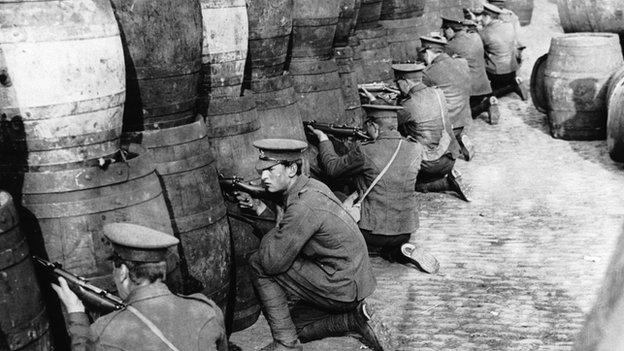
- Published8 April 2014
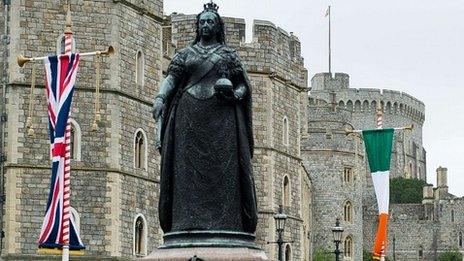
- Published2 January 2014
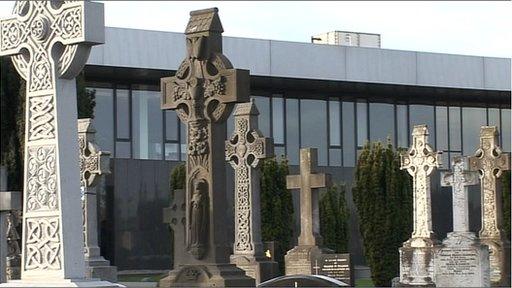
- Published25 November 2013
